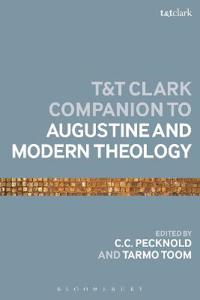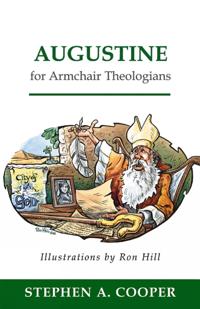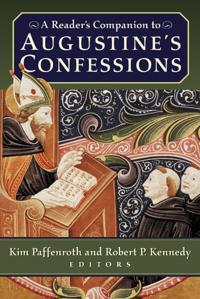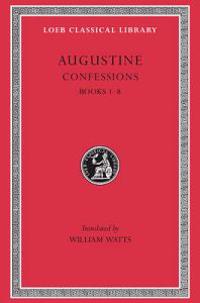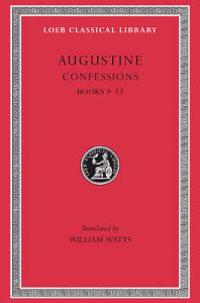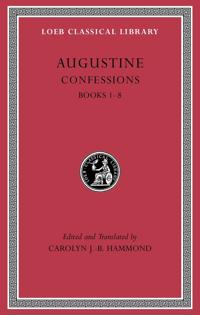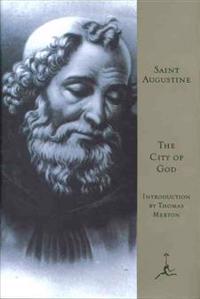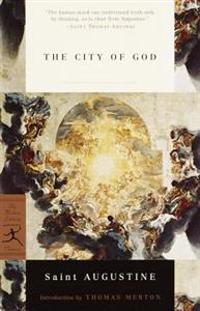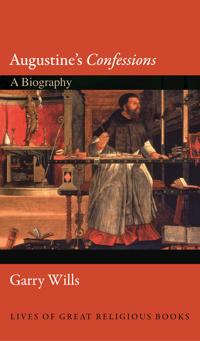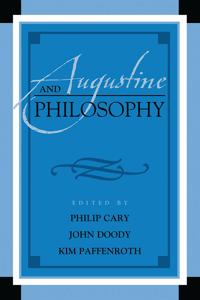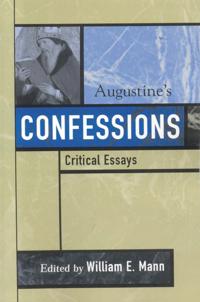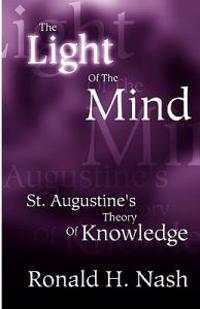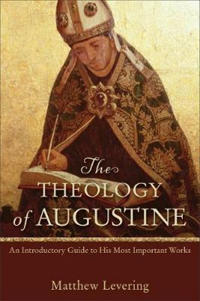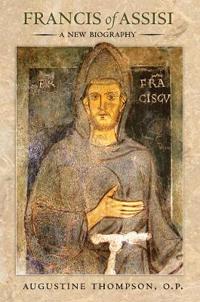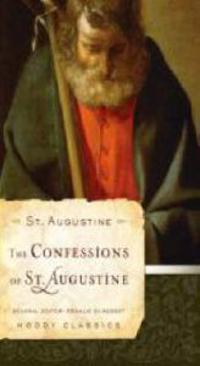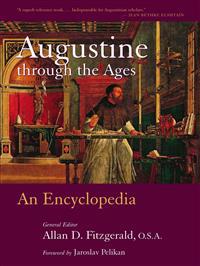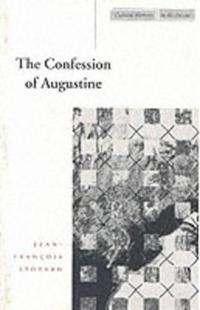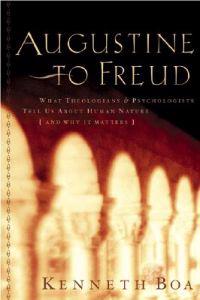The T&T Clark Companion to Augustine and Modern Theology (häftad)
ISBN: 9780567667922 - UTGIVEN: 2016-04The T&T Clark Companion to Augustine and Modern Theology is both a theological companion to the study of Augustine, and a resource for thinking about Augustine's importance in modern theology. Each of the essays brings Augustinian depth to a broad range of contemporary theological concerns. The volu[...]
Augustine for Armchair Theologians
ISBN: 9780664223724 - UTGIVEN: 2002-09In this book, Stephen Cooper provides an overview of the greatest theologian of the early church: Augustine of Hippo. Augustine has had a towering influence in the history of Christianity and his Confessions has long been regarded as one of Christianity's classic texts. Cooper introduces the life an[...]
A Reader's Companion to Augustine's Confessions
ISBN: 9780664226190 - UTGIVEN: 2003-07This book is a tool for teaching and studying the great Christian classic, Augustine's Confessions. It is a unique venture in which thirteen different scholars look at each of the thirteen books in the Confessions and interpret their chapters in light of that book and in light of the rest of Augusti[...]
Augustine the Reader (Häftad)
avBrian Stock
ISBN: 9780674052772 - UTGIVEN: 1998-03Augustine of Hippo, a central figure in the history of Western thought, is also the author of a theory of reading that has had a profound influence on Western letters from the ages of Petrarch, Montaigne, Luther, and Rousseau to Freud and the late 20th century. In the union of philosophy, psychology[...]
St. Augustine's Early Theory of Man, A.D. 386-391 (Inbunden)
avRobert J. O'Connell
ISBN: 9780674183070 - UTGIVEN: 2014-05Confessions (Inbunden)
avSaint Augustine
ISBN: 9780674990296 - UTGIVEN: 199801Augustine's Confessions is one of the most influential and most innovative works of Latin literature. Written in the author's early forties in the last years of the fourth century A.D. and during his first years as a bishop, they reflect on his life and on the activity of remembering and interpretin[...]
Confessions (Inbunden)
avSaint Augustine
ISBN: 9780674990302 - UTGIVEN: 199801Augustine's Confessions is one of the most influential and most innovative works of Latin literature. Written in the author's early forties in the last years of the fourth century A.D. and during his first years as a bishop, they reflect on his life and on the activity of remembering and interpretin[...]
Augustine Confessions (Inbunden)
avCarolyn J. B. (EDT) Hammond
ISBN: 9780674996854 - UTGIVEN: 2014-07Aurelius Augustine (354-430 CE), one of the most important figures in the development of western Christianity and philosophy, was the son of a pagan, Patricius of Tagaste, and his Christian wife, Monnica. While studying to become a rhetorician, he plunged into a turmoil of philosophical and psycholo[...]
City of God (Inbunden)
avSaint Augustine
ISBN: 9780679600879 - UTGIVEN: 199404One of the great cornerstones in the history of Christian philosophy, The City of God provides an insightful interpretation of the development of modern Western society and the origin of most Western thought. Contrasting earthly and heavenly cities--representing the omnipresent struggle between good[...]
City of God (Häftad)
avSaint Augustine
ISBN: 9780679783190 - UTGIVEN: 2000-10One of the great cornerstones in the history of Christian philosophy, The City of God provides an insightful interpretation of the development of modern Western society and the origin of most Western thought. Contrasting earthly and heavenly cities--representing the omnipresent struggle between good[...]
Augustine's Confessions (Inbunden)
avGarry Wills
ISBN: 9780691143576 - UTGIVEN: 201102In this brief and incisive book, Pulitzer Prize-winning historian Garry Wills tells the story of the "Confessions" - what motivated Augustine to dictate it, how it asks to be read, and the many ways it has been misread in the one-and-a-half millennia since it was composed. Following Wills' biography[...]
Augustine and Philosophy (Häftad)
ISBN: 9780739145395 - UTGIVEN: 2010-04Augustine of Hippo was a philosopher as well as theologian, bishop and saint. He aimed to practice philosophy not simply as an academic discipline but as a love for divine wisdom pervading everything in his life and work. To inquire into Augustine and philosophy is thus to get to the heart of his co[...]
Augustine's Confessions
ISBN: 9780742542327 - UTGIVEN: 2006-03Unique in all of literature, the Confessions combines frank and profound psychological insight into Augustine's formative years along with sophisticated and beguiling reflections on some of the most important issues in philosophy and theology. The essays contained in this volume, by some of the most[...]
St. Augustine's Confessions (häftad)
ISBN: 9780764544804 - UTGIVEN: 2004-03The original CliffsNotes study guides offer expert commentary on major themes, plots, characters, literary devices, and historical background. The latest generation of titles in this series also features glossaries and visual elements that complement the classic, familiar format."CliffsNotes on St. [...]
The Light of the Mind: St. Augustine's Theory of Knowledge (häftad)
ISBN: 9780788099175 - UTGIVEN: 2003-01The Theology of Augustine (Häftad)
avMatthew Levering
ISBN: 9780801048487 - UTGIVEN: 201303Most theology students realize Augustine is tremendously influential on the Christian tradition as a whole, but they generally lack real knowledge of his writings. This volume introduces Augustine's theology through seven of his most important works. Matthew Levering begins with a discussion of Augu[...]
Francis of Assisi (Inbunden)
avAugustine O. P. Thompson
ISBN: 9780801450709 - UTGIVEN: 201203Among the most beloved saints in the Catholic tradition, Francis of Assisi (c. 1181-1226) is popularly remembered for his dedication to poverty, his love of animals and nature, and his desire to follow perfectly the teachings and example of Christ. During his lifetime and after his death, followers [...]
Francis of Assisi (Häftad)
avAugustine O. P. Thompson
ISBN: 9780801479069 - UTGIVEN: 2013-11Francis of Assisi: The Life is an elegant and accessible biography of one of Catholicism's most beloved saints. Originally published as Part 1 of Francis of Assisi: A New Biography by Augustine Thompson, O.P., it stands alone as a richly informed portrait of a man whose complex faith and commitment [...]
The Confession of Augustine
ISBN: 9780804737937 - UTGIVEN: 2000-08This remarkable posthumous work by one of the leading philosophers of the twentieth century engages Augustine's Confessions, one of the major canonical works of world literature and the very paradigm of autobiography as a definable genre of writing.Lyotard approaches his subject by returning to his [...]
Augustine to Freud: What Theologians & Psychologists Tell Us about Human Nature--And Why It Matters (häftad)
ISBN: 9780805431469 - UTGIVEN: 2004-11Six theologians and eight psychologists from history square off, finding both differences and common ground in their thinking on the most basic human needs.[...]
Saint Augustine (Inbunden)
avJ. Kausten
ISBN: 9780809100453 - UTGIVEN: 1978-06A monumental project which brings the English-speaking work key selections from the remarkable literature of early Christianity -- vertiable trasures of Christian faith and theology in superb translations.[...]

